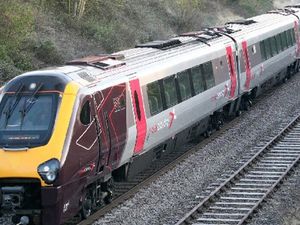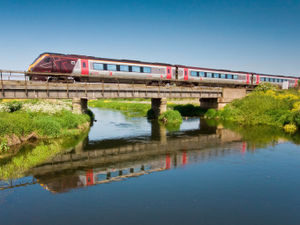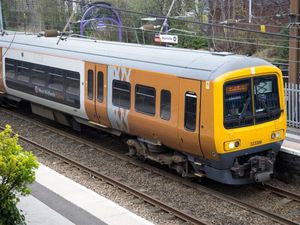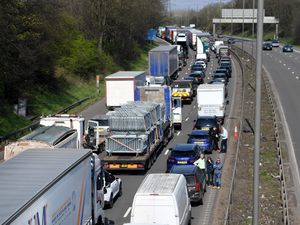Huge boring machine ready to dig HS2 tunnel
A huge tunnel boring machine (TBM) will dig HS2’s Bromford Tunnel, between Water Orton in North Warwickshire and Washwood Heath in Birmingham.
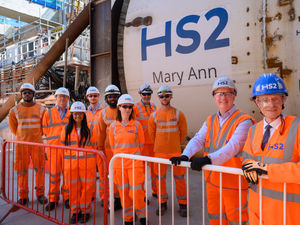
This is the fourth twin bore railway tunnel to start construction on Britain’s biggest infrastructure project.
The 3.5-mile tunnel will take high speed trains into Birmingham as they approach Curzon Street Station in the heart of the city.
The name of the TBM is ‘Mary Ann’ after Mary Ann Evans, better known by her pen name George Eliot, who was an English novelist, poet, journalist, translator and one of the leading writers of the Victorian era. Evans was born in Nuneaton and her novels, most famously Middlemarch, are celebrated for their realism and psychological insights. The name was suggested by the Warwickshire community.
The programme is being delivered by around 450 people working for HS2’s contractor Balfour Beatty VINCI. The expert tunnelling team will operate the TBM 24/7, with each bore taking around 16 months.
West Midlands Mayor Andy Street said: “This is a milestone moment for HS2 in our region. Now that work is underway on this tunnel, in a few years time it will carry high speed trains into Birmingham.
“It’s a remarkable feat of engineering – testament to our skills base, industry expertise and workforce talent.
“I look forward to seeing the project progress over the coming months and years – continuing to generate jobs, training and economic opportunities for local people and businesses right across the West Midlands.”
HS2 Ltd chief executive Mark Thurston said: “It was fantastic to celebrate this big construction milestone on the HS2 project as the Bromford Tunnel TBM gets ready for its journey to build the tunnel into Birmingham. There are nearly 9,000 people in the West Midlands working on HS2, with a 450-strong team working on this particular operation.
“This is one of 350 sites well underway on HS2, helping to support over 400 firms in the region, with over £1.7 billion of contract awards for local businesses so far. Work is still ramping up, with two stations in the West Midlands still to be built, so there are many more contracts up for grabs.”
Neil Johnson, Balfour Beatty VINCI’s health, safety, wellbeing and tunnels director, said: “The excitement among the tunnelling team at our Bromford site has been growing for months as we’ve worked hard to prepare for yet another huge moment on the HS2 project. The whole team is proud to reach this next big milestone.
“We were particularly pleased that our new tunnelling apprentices will be able to develop their skills as the TBM progresses – what an amazing opportunity for them.”
After final testing, the TBM will launch from a large underground box structure which forms the east portal of the tunnel. Over the last few months, sections of the machine – including the massive 8.62 metres diameter cutter head – were lowered into the box where it was assembled.
A total of 20,797 segments will be put in place by the TBM, making 2,971 concrete rings to form the tunnel. Each segment is two metres wide and 35cm thick, with each completed ring weighing around 49 tonnes.
The TBMs will remove 1.87 million tonnes of excavated material, which will be sifted at the on-site slurry treatment plant and reused on nearby sites at the Delta Junction.

